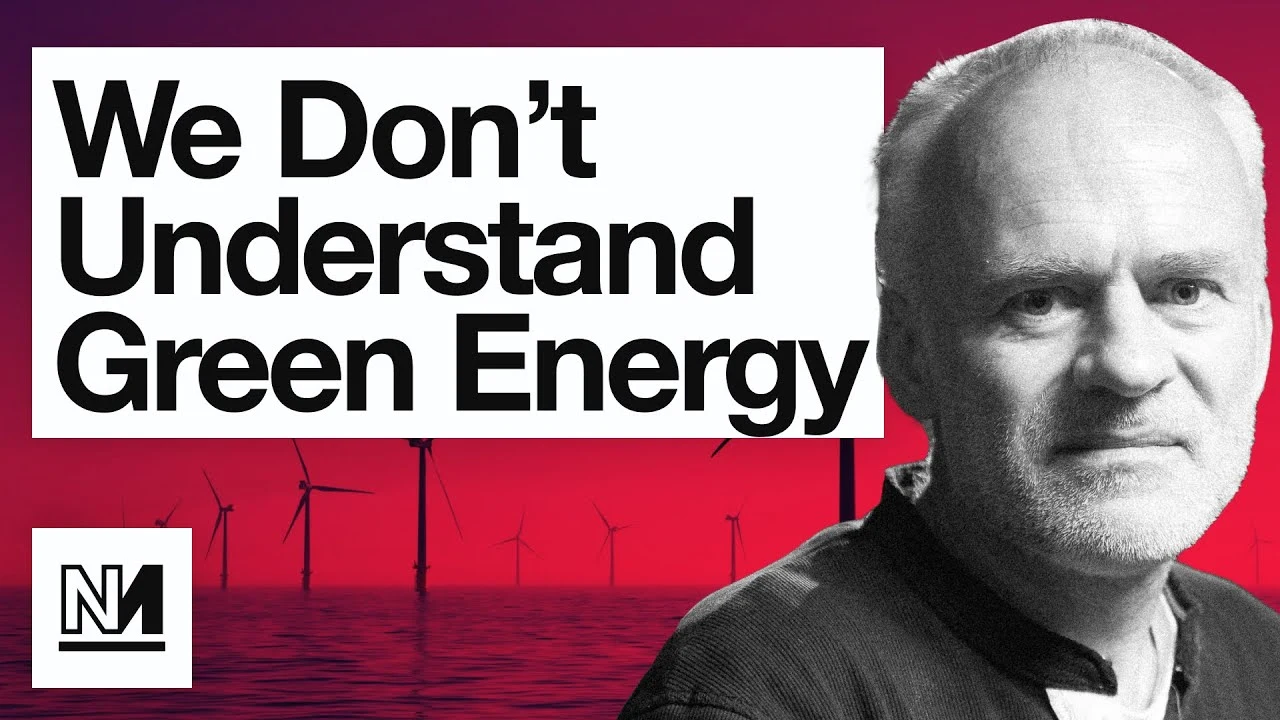- cross-posted to:
- collapse@lemmy.ml
- cross-posted to:
- collapse@lemmy.ml
cross-posted from: https://lazysoci.al/post/14253829
Summary: The video is about the challenges of decarbonizing the world economy and why capitalism is not an effective solution, according to the guest speaker Brett Christophers. Christophers is interviewed by Aaron Bastani on Novara Media.
The conversation starts with the confusion around the term “Net Zero.” Christophers explains the difference between Net Zero and real zero emissions. Net Zero allows emissions as long as they are offset by carbon capture or sequestration.
Christophers argues that governments are not serious about decarbonization because they continue to grant new oil and gas exploration licenses. He also criticizes the over-reliance on future, unproven technologies for capturing carbon emissions.
The interview then covers why electrification is critical for mitigating climate change. Christophers explains that most greenhouse gas emissions come from burning fossil fuels to generate electricity. Therefore, decarbonizing the electricity sector is the most important strategy.
The conversation then dives into the challenges of transitioning to renewable energy sources. Christophers acknowledges that solar and wind are not perfect solutions because they are intermittent sources of energy. He also discusses the land-use challenges of building large-scale solar and wind farms.
Nuclear power is brought up as a potential solution, especially for large companies that need consistent baseload power. Christophers says that governments should incentivize the development of all carbon-free energy sources, including nuclear.
The video concludes with Christophers arguing that capitalism is not a solution to the climate crisis because it prioritizes the interests of capital over the well-being of the planet.



Wait, what are the other options? Btw a USSR-style planned economy falls outside the term market economy, even thoughthey had money, right?
Uhm, yes. That’s the polar opposite of market economy; a planned economy.
One of the definitions of socialism is “the means of production are owned or regulated by the state”.
I know a lot of people vehemently disagree, but we Nordics are technically socialist countries. Social democracies which utilise market socialism, insofar that the markets are heavily regulated and products taxed, but taxes (and fines) are progressive, and the tax money gets spent on society. (Well, in the ideal case, obviously, we’re faaaaar from fucking perfect.)
Capitalism is essentially just to market economies what cancer is to cell growth. It’s not to wrong to call the former the latter, but the latter is a category. The former is usually also malignant.
Capitalism always strives for monopolies. That’s why even the US has socialist policies. That’s not to be taken as me saying they’re socialist in any way, just the nature of the policies are. It’s the state regulating the market to prevent monopolies from fucking it up. Antitrust laws.
So to answer your question of “what other options”, have a peek at market socialism.
I think we have the resources to give everyone a shitton more if the crazy wealth hoarders stop. That’s it. Get some control on the crazy addiction for money, we can still have market economies, private property, a faster developing economy, but also less crime, less inequality and less suffering overall.
Literally just take the ultra rich out of the picture. We will still have rich people and people can strive for wealth. Just as long as we meet people’s basic needs, have good labour laws and manage to take care of the planet.
And because that will jump start even more space exploration since we could actually fund NASA instead of having Elon play with his dildockets, we could actually get somewhere, and once there’s proper infra for some commerce up there, hey, go at it capitalists, the space is literally infinite. Just don’t mess up our solar system.
Thank you for this eye opening post. I think I can describe my positions as market socialist. I haven’t yet formed an opinion on de-growth, but one thing I think we should definitely do is ban publicly traded companies (except for a few niche exceptions), as I feel that family ownership would put a natural limit on how much growth CEOs feel they need. Alternatively, income tax could be made to approach 100% as a person’s income approached infinity (to cause diminishing returns on growth), although this might have the side effect of making the state dangerously rich.
I thank you.
It’s rare to get a good faith reply to my replies sometimes, huehue.
I’m too sleepy to respond in depth, perhaps tomorrow. Good night, fr3n.
Good night, I’m in Czechia so I should be asleep too rn lol. Also enjoy the sunrise :-)